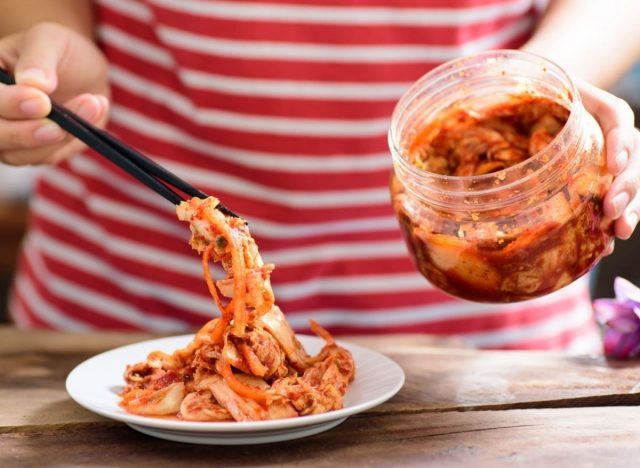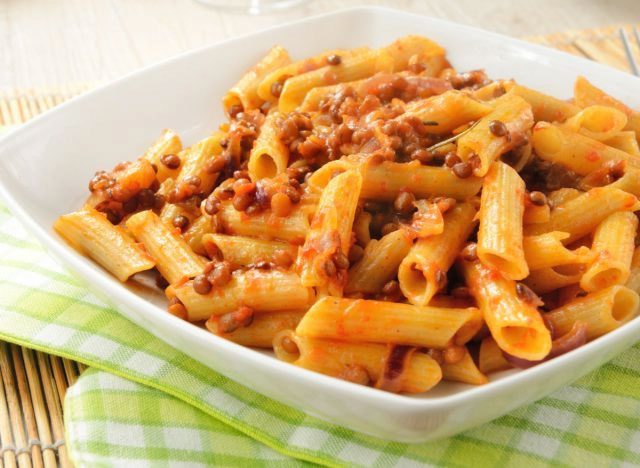You lie there, staring at the clock, waiting for sleep to come, but for some reason, you just can’t seem to drift off. That feeling is quite frustrating. Could it be something you ate? It’s possible. There is definitely a connection between your diet and your nighttime rest. A variety of eating habits can cause insomnia—or even lead to chronic sleep problems.
Eating Habits That Cause Insomnia
If you’re wondering whether your dinner might be keeping you awake at night, read on to learn more about six common eating habits that can impact your sleep.
1. Excessive Caffeine Consumption – The Leading Cause of Insomnia
No surprises here! Caffeine is well-known for its brain-stimulating effects, keeping you alert. This natural substance—found in coffee, tea, chocolate, some supplements, and many other products—blocks the brain’s receptors for adenosine, a chemical that promotes sleep. Consuming too much caffeine during the day (or eating and drinking caffeinated foods too close to bedtime) is a major cause of waking up at night.
The effects of caffeine tend to peak about 30-60 minutes after consumption, but you need to pay attention to your own tolerance levels. Some people are so sensitive to caffeine that even their morning cup of coffee can disrupt their sleep at night. According to some studies, the effects of caffeine on the body can last up to 6 hours (or longer), which is why many experts recommend consuming caffeinated beverages no later than 2-3 PM to avoid impacting your nighttime sleep quality.
2. Overuse of Energy Drinks, Similar to Caffeine
Not all sleep-disrupting beverages contain caffeine. Some, like herbal energy drinks, contain other substances designed to boost your energy. While this can be beneficial when you’re feeling sluggish in the afternoon, it’s not a great idea close to bedtime. This is because, like caffeine, they can keep your eyes “wide awake” and prevent you from falling asleep when you really want to.
If you enjoy drinks with stimulating ingredients like ginseng, Rhodiola rosea (an herb), and maca root, remember to consume them earlier in the day to avoid sleep disruption.
3. Eating Spicy Foods Before Bed

Eating spicy foods can cause heartburn, affecting your sleep.
There’s nothing wrong with snacking late at night occasionally. However, for a good night’s sleep, don’t turn it into a “spicy feast.” Eating spicy foods can cause heartburn at any time, but especially when you lie down. Without gravity (when lying down) to keep stomach acid in place, it can easily move up the esophagus, leading to pain, acid reflux, and indigestion, ultimately resulting in GERD (Gastroesophageal Reflux Disease). Studies show that those with GERD are more likely to experience sleep problems than the general population.
Of course, that doesn’t mean spicy foods can’t appear in your daily menu! Try to enjoy spicy dishes at lunchtime and opt for lighter snacks for dinner.
4. Consuming Too Much Saturated Fat
Some studies have questioned how saturated fat affects sleep—and the results are not favorable. According to a 2020 study that reviewed several such studies, consuming high amounts of saturated fat during the day leads to poorer sleep quality at night. One study in the review found that individuals with a diet high in saturated fat were more likely to wake up at night more frequently and experienced less restorative sleep (more difficulty falling back asleep).
Fortunately, not all fats cause this issue. Omega-3 fatty acids have the opposite effect; they promote sleep! Oils rich in DHA and EPA have been shown to enhance sleep efficiency and reduce the time it takes to fall asleep (making it easier to sleep). To increase your intake of these beneficial oils, look to flaxseeds, walnuts, and fatty fish like tuna and salmon.
5. Eating Too Many Refined Carbs

Older women consuming high amounts of refined carbohydrates are more likely to have difficulty sleeping.
A diet high in refined carbs can increase the risk of weight gain, heart disease, and diabetes. And insomnia, too.
According to a large 2019 study, older women consuming the highest amounts of refined carbohydrates (e.g., white bread, pastries, and pasta) were more likely to have difficulty getting a good night’s sleep. They were also more likely to develop new insomnia after three years of follow-up.
A possible explanation for the link between refined carbs and poor sleep is: “these types of carbohydrates cause a rapid spike in blood sugar. Continuously high blood sugar levels are associated with sleep disruptions such as sleep apnea and general insomnia.”
6. Not Getting Enough Certain Nutrients
The best sleep aid may just be a multivitamin. There is a clear reciprocal relationship between healthy sleep and micronutrients in food. You may have heard that magnesium is recommended for improving sleep quality, but it’s not the only option in your micronutrient arsenal. Research from 2019 found that individuals with shorter sleep durations had lower-than-normal levels of various vitamins and minerals, including calcium, vitamin D, vitamin K, and magnesium. Similarly, a 2016 study linked sleep deprivation with low levels of iron, zinc, and magnesium.
Eating a healthy, varied diet is key to obtaining these vitamins and minerals—but talk to your doctor if you feel you might need to supplement with some additional nutrients from dietary supplements.



















































